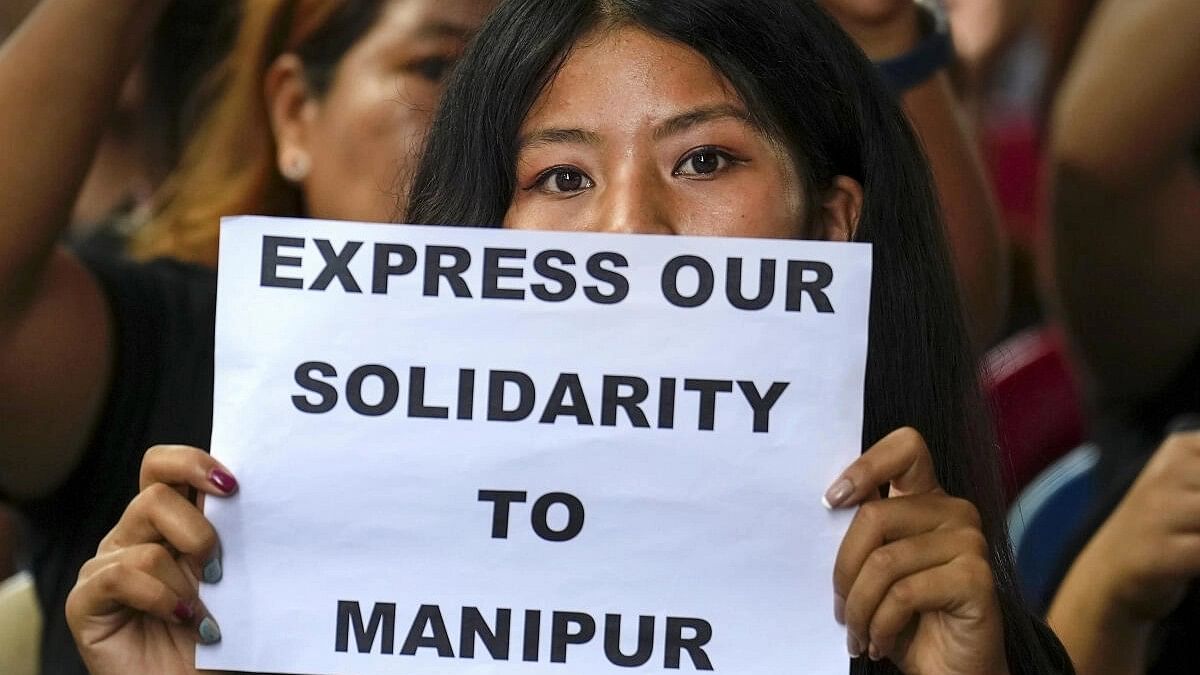
Kuki community people from Manipur during a protest
Credit: PTI File Photo
Bengaluru: The 36th general body meeting of the Catholic Bishops' Conference of India (CBCI), which begins in the city on Wednesday, will discuss a range of issues, including the situation in Manipur, the attacks on churches and the Uniform Civil Code (UCC).
The week-long meeting's central theme is 'Church's response to the current socio-political situation in the country and the benefits and challenges of Artificial Intelligence'.
The CBCI is a forum for Catholic bishops to deliberate on matters affecting the church.
Archbishop Leopoldo Girelli, Vatican Ambassador to India and Nepal, will inaugurate the meeting that will be attended by 175 bishops.
"The church, as such, is apolitical in India. But we may have political stands on particular issues," CBCI president Most Rev Andrews Thazhath told reporters on Tuesday.
Talking about Christianity's origins in India, he said: "Christianity is not a foreign religion in India. It's been here for 2,000 years. Christianity came to India before it reached Europe and much of the Christian world," he said.
Asked about the UCC, he said some bishops might discuss it at the meeting, while the Manipur situation would be discussed in detail.
"We don't want to talk about the violence (in Manipur). I met (Union) Home Minister Amit Shah and requested him to do something to stop the violence and bring in peace," he said. "I hope he's doing his best."
He said the majority of churches destroyed during the conflict in Manipur belonged to the Meitei tribe in the Meitei areas.
Thazhath wouldn't say if Christian leaders raised the attacks on churches during their recent breakfast meeting with Prime Minister Narendra Modi. "I wasn't there, but those who attended may not say it in public," he said.
Asked about the purported removal of the words 'secular and socialist' from the Preamble of the Constitution, Thazhath said: "We co-exist because of the beautiful expression of the Constitution. We want the Constitution respected, maintained and enforced. We don't support any change in the Constitution."
While he expressed concern about the attacks on Christian places and symbols, he said the revocation of the FCRA licence of some Christian organisations was a "legal matter".